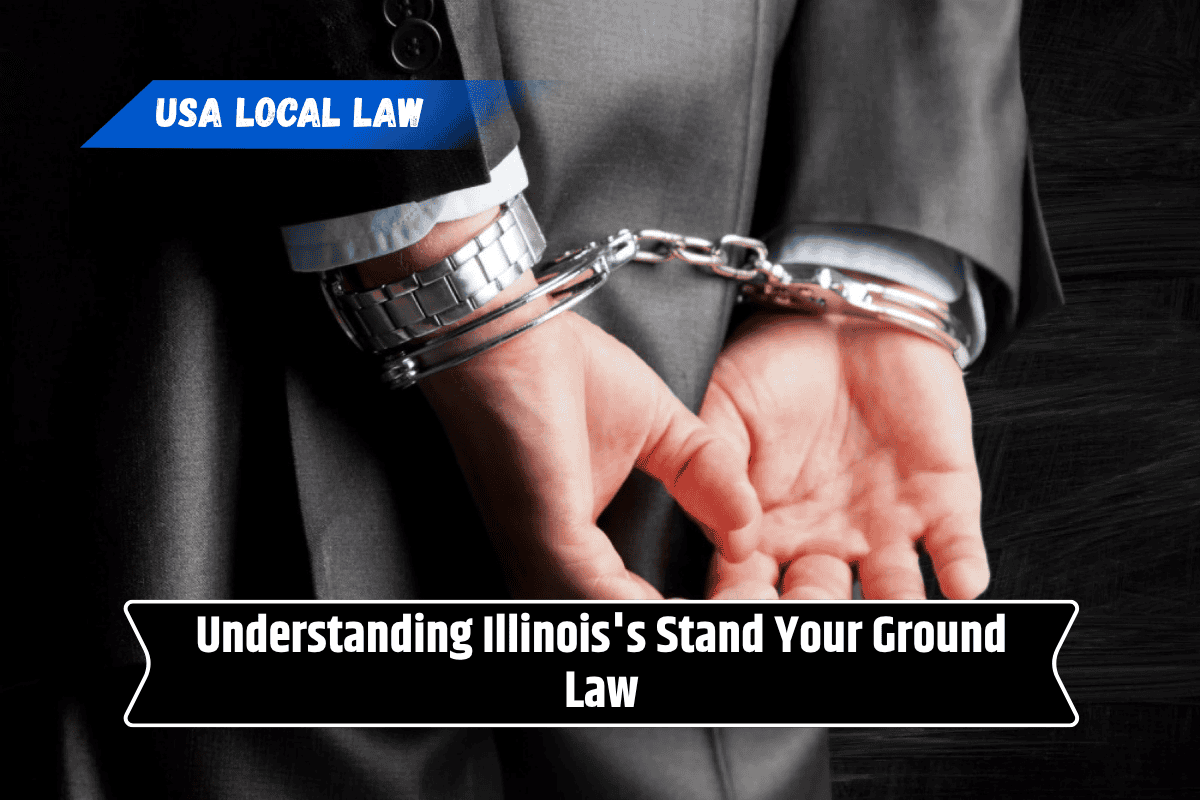Self-defense laws in the United States can be different in every state. One of the most talked-about legal topics is the “Stand Your Ground” law. This law gives people the right to protect themselves without having to run away first. But how does this apply in Illinois?
This article explains what Illinois’s version of the law means, how it works, and what rights people have in real-life situations.
What Is a Stand Your Ground Law?
A Stand Your Ground law allows a person to defend themselves — sometimes with deadly force — if they believe they are in danger. In states that have strong Stand Your Ground laws, people are not required to try to escape or avoid a fight before protecting themselves.
Does Illinois Have a Stand Your Ground Law?
Illinois does not have a law that is officially called “Stand Your Ground.” However, the state still gives people the right to use force for self-defense, including deadly force in some situations. This means that Illinois follows similar ideas but with some conditions.
What Does the Law Say in Illinois?
In Illinois, the law allows people to use force when they reasonably believe it is needed to stop a threat. Deadly force can be used if a person feels that they or someone else is in danger of serious injury or death.
The key point is this: the person must have a reasonable belief that using force was the only way to stay safe.
Is There a Duty to Retreat in Illinois?
Illinois does not have a clear “duty to retreat” law, but the courts do look at whether a person could have safely walked away from the situation. If someone had a chance to leave without using force, that could be used against them in court.
So while Illinois doesn’t force you to run away, it also doesn’t protect you in the same way as other Stand Your Ground states like Florida or Texas. Each case depends on the details and what a “reasonable person” would do.
Castle Doctrine in Illinois
Illinois does follow the Castle Doctrine. This means that if someone breaks into your home, you have the right to defend yourself — including using deadly force. You don’t have to run or hide in your own home.
The Castle Doctrine also applies to places like your car or your workplace in some situations. But just like with other laws, your actions must be reasonable and necessary to stop a real threat.
Important Points to Know
Even if you feel threatened, you can’t just use force right away. The law only protects you if:
You are not the aggressor
You truly believed you were in danger
You used only as much force as was needed
Using more force than necessary or starting a fight and then claiming self-defense may not be protected under Illinois law.
Can You Be Charged Even If You Were Defending Yourself?
Yes, it’s possible. If the police or court believe your actions were too extreme or not justified, you could still face charges. That’s why it’s important to report the incident right away, cooperate with the investigation, and if needed, get legal help.
Illinois does not have a typical Stand Your Ground law, but it does allow people to defend themselves when facing real danger. The law supports self-defense in homes (under the Castle Doctrine) and in other situations, as long as the response is reasonable.
While you don’t have to run away in every case, your actions must make sense based on the threat. Always remember that each case is different, and courts will look closely at the facts to decide what was right. Understanding your rights can help you stay safe — and stay on the right side of the law.
